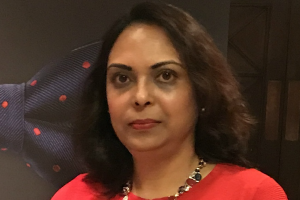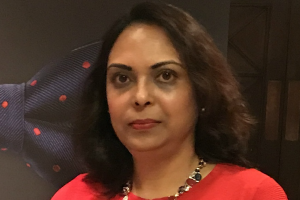How I pulled my practice out of special measures

Dr Tamasi Basu faced an uphill struggle to raise the performance of her practice when the CQC rated it ‘Inadequate’ and her partner was on long-term sick leave. With the practice facing closure and patient safety falling short, Dr Basu went above and beyond to turn things around. This is how she did it.
Profile: Dr Tamasi Basu

What’s your role? GP Partner at Balfour Medical Centre in Grays, Essex
How long have you been a GP? 11 years
How would you describe your practice? It is an urban practice with around 5,100 patients, a mixture of young and elderly; we care for a few nursing homes.
What gets you up in the morning?
As a full-time mum and full-time GP, this is more than enough to get me going – I love my profession and my family.
What problems was the practice facing?
In 2016, Balfour Medical Centre was rated ‘Inadequate’ by the CQC and placed under special measures. There were manifold problems: inappropriate prescribing – of antibiotics and DMARDs in particular – and no controlled drugs policy was in place. Our medicine management team had also highlighted that we were overspending on prescribing.
Patient safety needed to be improved, as safeguarding of both adults and children fell short. The surgery was in the lower half of national statistics for two-week wait cancer referrals, and emergency cancer diagnosis was higher than national average.
We had high rates of DNAs for chronic disease clinics. With the practice facing closure and my senior partner on long-term sick leave, pressures were mounting, patients were extremely worried and staff morale was at an all-time low.
What did you do?
As the newly appointed prescribing lead for the practice, I worked in collaboration with the CCG and local medicine management team, updating clinical prescribing guidance and sharing it with the practice’s GPs. I developed a protocol for the prescription of DMARD, antibiotics and warfarin to ensure appropriate prescribing, and established a controlled drugs policy in collaboration with the local medicine management team.
I conducted 14 clinical audits on prescribing and MHRA drug alerts, patient safety alerts and cost-effective prescribing. In addition, we raised a significant event in delayed DVT diagnosis, which led to the development of a strategy for GPs to chase referrals. This was shared with the CCG and new phone lines for the DVT clinic were made available on the hospital website for all practices.
As safeguarding lead, I set up a protocol for in-house safeguarding multidisciplinary team meetings with health visitors and school nurses for children registered with the practice, including looked-after children and those under child protection. I did an audit on Looked After Children which was shared with CCG safeguarding team and discussed in the local safeguarding forum.
Working with the patient participation group, I put steps in place to minimise DNAs, with a ‘DNA action plan’.
I also discussed plans to increase two-week wait referrals for cancer with the public health cancer team to boost timely diagnosis. I have also planned an in-house audit on cancer referrals.
What were the challenges?
It was a very difficult time and involved my working 60-plus hours a week to make all the necessary improvements. With my partner on long-term sick leave, I took responsibility for overall supervision of clinical and non-clinical staff and services, took on the mantle of prescribing lead, and extended my role further as the incumbent safeguarding lead. With so much to achieve, I had to cancel some of my time off and holidays during this year.
What improvements did you see?
Most importantly, our 2017 CQC inspection yielded an overall rating of ‘Good’ – an exceptional improvement in just eight months from the previous year’s result. The CQC were particularly impressed with the audit for Looked After Children, and took a copy of the audit as an example of good work.
After implementing guidance for antibiotics prescription, we exceeded our target of a 5% reduction in prescriptions – achieving a 9% reduction.
So far we have recorded an increase in two-week wait cancer referrals and we are now waiting for final data from the public health team for the year 2016/17.
We were able to give all practice staff a pay rise reflecting their hard work and dedication, and feel the whole process improved staff morale and enthusiasm.
What colleagues say
Practice staff:
‘I have known Dr Basu for several years… She has taken over the practice in the last year and has overcome pressures and problems, whilst continuing her caring for patients. She has the respect of patients and staff.’
‘Motivating and lovely doctor to work with, popular with the patients and goes out of her way to help patients.’
CQC Inspector: ‘Most doctors would leave in such a situation but you have taken on the challenge and made everything right for the practice and the patients. You have worked extremely hard in just eight months to improve the surgery so much from where we saw it in 2016.’
Pulse October survey
Take our July 2025 survey to potentially win £1.000 worth of tokens










